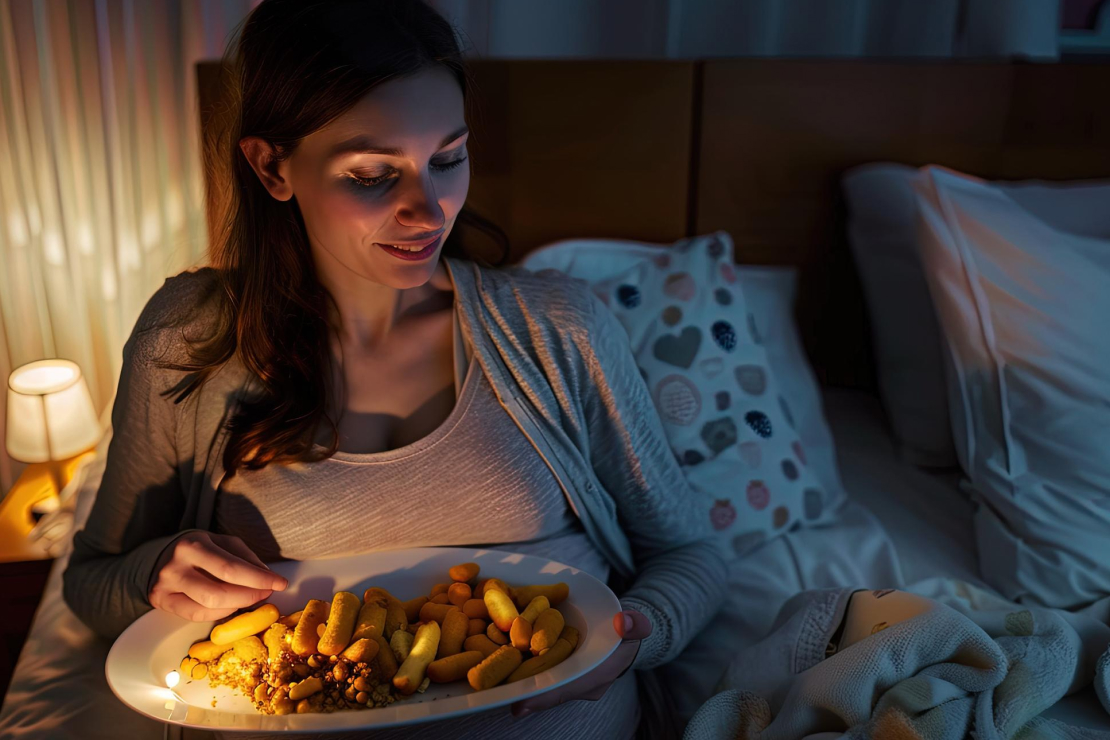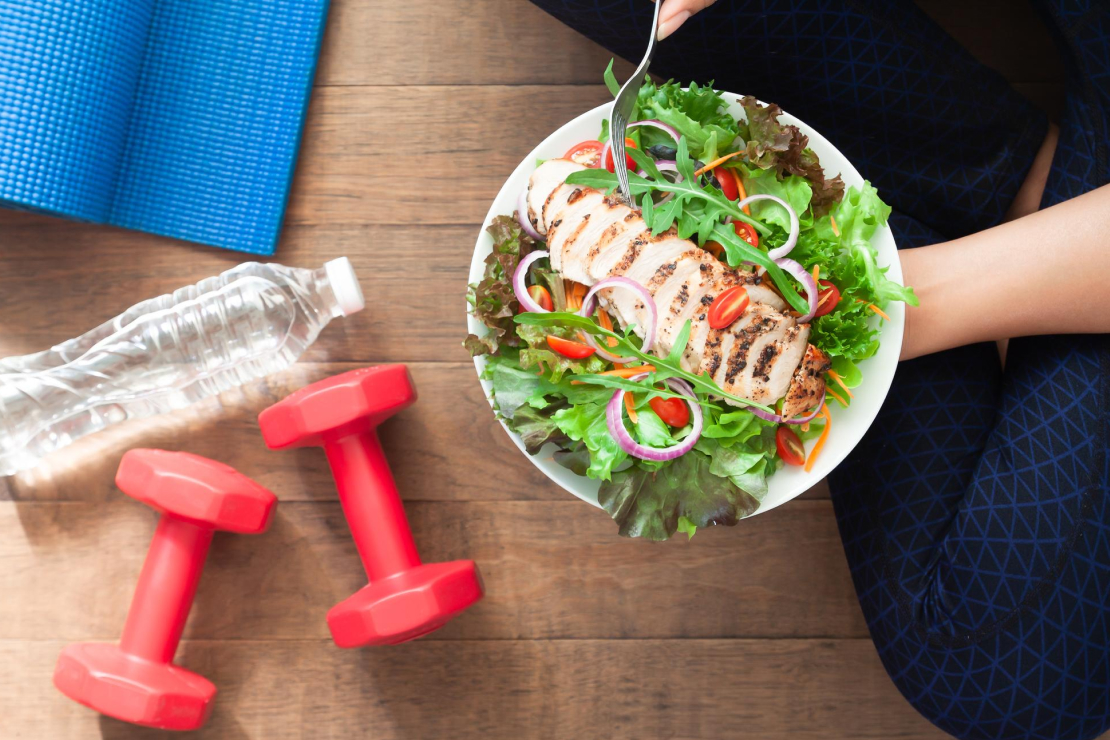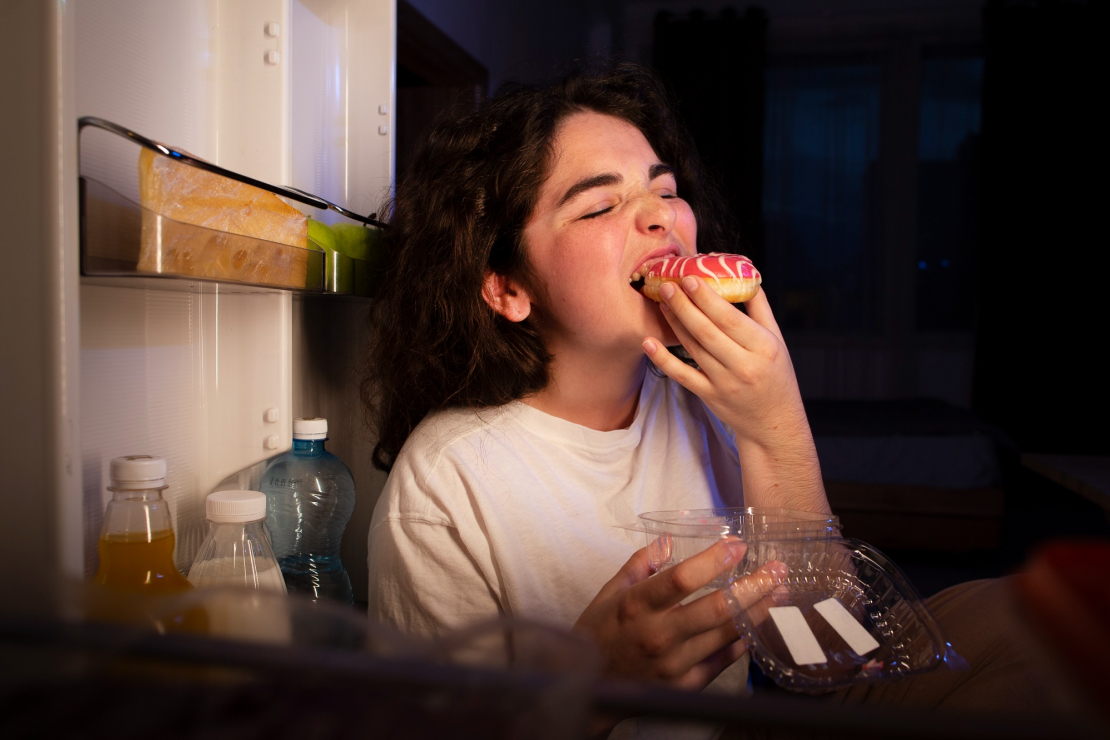Eating Before Bed: Can a Small Snack Actually Help Burn Fat?
Debunk the myths about late-night eating and fat loss. Discover how strategic, small snacks before bed can actually support metabolism, muscle recovery, and even aid in fat burning. Learn what to eat and when.

Table of Content
The Midnight Snack Dilemma: Friend or Foe for Fat Loss?
For decades, the conventional wisdom for weight loss has been clear: avoid eating before bed. The fear is that calories consumed late at night, when metabolism supposedly slows down, will inevitably be stored as fat. However, modern nutritional science is challenging this long-held belief. Emerging research suggests that a small, strategically chosen snack before bed might not only be harmless but could actually support your fat loss goals, enhance muscle recovery, and improve sleep quality. This article delves into the science behind late-night eating and how to make it work for you.
The Science of Nighttime Metabolism: It Doesn't Shut Down
The idea that your metabolism grinds to a halt at night is a common misconception. While your metabolic rate does decrease during sleep compared to active waking hours, it certainly doesn't stop. Your body continues to perform vital functions—repairing cells, regulating hormones, and maintaining body temperature—all of which require energy. In fact, your basal metabolic rate (BMR) accounts for the vast majority of your daily calorie expenditure, and it continues working while you sleep.
- Basal Metabolic Rate (BMR): Your body burns calories even at rest to maintain basic life functions. This accounts for 60-75% of your total daily energy expenditure.
- Thermic Effect of Food (TEF): Digestion itself burns calories. While TEF is slightly lower at night, it's not negligible.
- Sleep Stages: Calorie expenditure varies across sleep stages, with REM sleep burning more calories than deep sleep.
How a Strategic Bedtime Snack Can Help Fat Loss
When chosen wisely, a small snack before bed can offer several benefits that indirectly or directly support fat loss.
1. Enhanced Muscle Recovery and Growth
For those engaged in regular exercise, particularly strength training, consuming protein before bed can be highly beneficial. Sleep is a critical period for muscle repair and growth. Providing your body with a slow-digesting protein source ensures a steady supply of amino acids throughout the night.
- Muscle Protein Synthesis (MPS): Studies show that consuming 30-40g of casein protein (a slow-digesting dairy protein) before bed can significantly increase overnight MPS, leading to greater muscle gains and better preservation of lean mass during a calorie deficit.
- Reduced Muscle Breakdown: A consistent supply of amino acids can help prevent muscle protein breakdown, which is crucial for maintaining a higher metabolic rate.
2. Improved Satiety and Reduced Morning Hunger
A well-timed snack can prevent you from going to bed ravenous, which often leads to poor sleep quality and increased hunger the next morning. It can also curb late-night cravings that might otherwise lead to overeating unhealthy foods.
- Appetite Regulation: A protein-rich snack can help stabilize blood sugar levels and regulate hunger hormones (ghrelin and leptin), leading to better appetite control throughout the night and the following day.
- Preventing "Rebound" Hunger: Going to bed extremely hungry can disrupt sleep and cause you to wake up ravenous, potentially leading to overeating at breakfast.
3. Better Sleep Quality
Certain nutrients can promote relaxation and improve sleep quality, which is indirectly linked to fat loss. Poor sleep disrupts hunger hormones and increases cravings for unhealthy foods.
- Tryptophan and Serotonin: Foods rich in tryptophan (an amino acid) can aid in the production of serotonin and melatonin, neurotransmitters that promote relaxation and sleep.
- Blood Sugar Stability: A balanced snack can prevent blood sugar drops during the night, which can otherwise wake you up or disrupt deep sleep.
What to Eat Before Bed for Fat Loss: The Best Choices
The key is to choose small, nutrient-dense snacks that are primarily protein-based, with some healthy fats and minimal simple carbohydrates. Aim for a snack that is around 150-200 calories.
Top Bedtime Snack Options:
| Snack | Approx. Calories | Key Benefits | Why It Works for Fat Loss |
|---|---|---|---|
| Greek Yogurt (plain, 1/2 cup) | 70-80 kcal | High in casein protein (slow-digesting), probiotics. | Supports overnight muscle repair, aids digestion, promotes satiety. |
| Cottage Cheese (1/2 cup) | 80-100 kcal | Rich in casein protein, low in fat. | Similar to Greek yogurt, provides sustained amino acid release. |
| Hard-Boiled Egg (1 large) | 70-80 kcal | Complete protein, essential nutrients. | Highly satiating, easy to digest, minimal carbs. |
| Small Handful of Almonds (10-12 nuts) | 70-80 kcal | Healthy fats, protein, magnesium. | Magnesium aids sleep, healthy fats promote satiety. |
| Protein Shake (1/2 scoop casein/whey blend) | 70-100 kcal | Fast and slow-digesting protein blend. | Convenient, customizable, ideal for muscle recovery. |
| Small Apple Slices with 1 tbsp Peanut Butter | 150-180 kcal | Fiber, healthy fats, protein. | Fiber and fat provide sustained fullness, natural sweetness. |
What to Avoid Before Bed
Just as important as what to eat is what to avoid. Certain foods can disrupt sleep, cause digestive discomfort, and hinder fat loss efforts.
- High-Fat, Greasy Foods: These take a long time to digest and can cause indigestion, heartburn, and disrupt sleep.
- High-Sugar Foods: Sweets, pastries, and sugary drinks can cause a rapid spike and then crash in blood sugar, leading to disrupted sleep and increased cravings later.
- Caffeine: Found in coffee, tea, chocolate, and some sodas, caffeine is a stimulant that can interfere with sleep.
- Alcohol: While it might initially make you feel sleepy, alcohol disrupts sleep architecture, leading to fragmented and less restorative sleep.
- Large Meals: Eating a heavy meal too close to bedtime can overwhelm your digestive system and make it difficult to fall asleep.
Timing is Key: When to Eat Your Bedtime Snack
The ideal timing for your bedtime snack is typically 30-60 minutes before you plan to go to sleep. This allows for initial digestion to begin without causing discomfort, and ensures the nutrients are available for overnight processes.
- Listen to Your Body: If you're genuinely hungry, a snack is appropriate. If you're eating out of habit or boredom, try a non-food coping mechanism first.
- Align with Your Schedule: Adjust the timing based on your personal bedtime and how quickly you digest food.
Conclusion: Smart Snacking for Smarter Fat Loss
The old adage of avoiding all food before bed for fat loss is outdated. By understanding your body's nighttime metabolic processes and strategically choosing small, protein-rich snacks, you can actually support muscle recovery, improve sleep quality, and even aid in fat burning. The key lies in mindful choices and portion control. So, next time hunger strikes before bed, reach for a smart snack and let it work for your fat loss goals, not against them.
Start Your Health Journey Today
Download Macro Tracking AI and take control of your nutrition with the power of artificial intelligence.
Download on App Store

